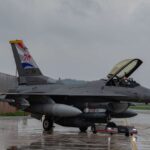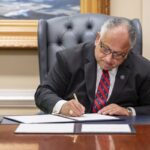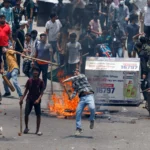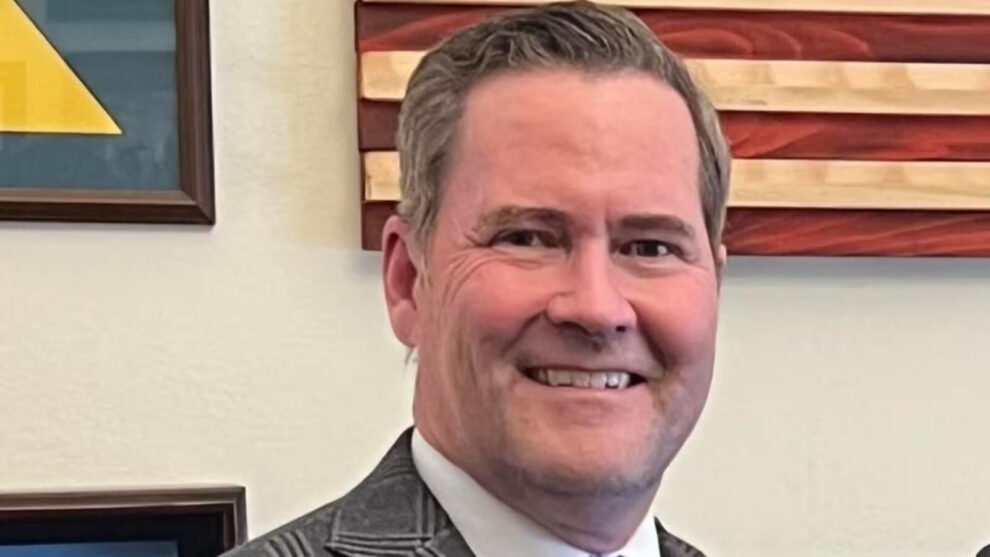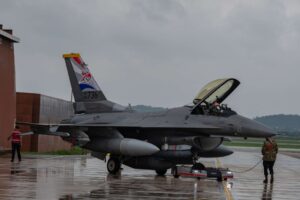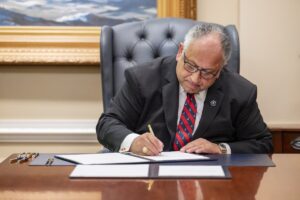NEW DELHI: India and the US have to stand together militarily, economically and democratically to counter China’s assertive behaviour across the region, the Republican co-chair of the Congressional Caucus on India and Indian Americans Mike Waltz said on Tuesday.
Waltz, who co-chairs the caucus with Democratic lawmaker Ro Khanna and is visiting India with a bipartisan Congressional delegation at the invitation of the government, said in an interview that such trips expose members of the US Congress to different aspects of the country and help them in framing policies and legislation.
Waltz, who has consistently advocated for the US taking a stronger stand against China’s activities, characterised Beijing’s actions across the region as “aggressive” and said: “I think it’s only going to become more aggressive. Chairman Xi [Jinping], the leader of the Chinese Communist Party, is telling his country to prepare for war.
“They are aggressive in western China, in Tibet, on the Line of Actual Control (LAC), Taiwan, the Philippines, South China Sea – I mean really across the board, in every sphere. So, this isn’t just a Taiwan problem or an Indian border problem.”
Describing China’s actions as a “global problem”, Waltz, who served in the US Army and as a White House and Pentagon policy advisor, said democracies such as the US and India “can stand together diplomatically through various forums, whether it’s Asean or the Quad”.
He added, “We can stand together militarily with the increasing defence ties. I think the most important thing is [cooperating] economically, as the US and the West pull its supply chains out of China, rightly.”
While relocating its supply chains, the US can look at countries such as India as they “can help with manufacturing and other industries” and will not “use those supply chains as geopolitical leverage”, he said.
Waltz’s comments came against the backdrop of a dragging military standoff between India and China on the LAC, which has entered its fourth year. A brutal skirmish in Galwan Valley in June 2020 that killed 20 Indian soldiers and at least four Chinese troops has taken bilateral ties to a fresh low. Amid the standoff on the LAC, India’s strategic and defence cooperation with the US has registered a significant uptick.
Turning to new areas of cooperation between India and the US, Waltz spoke about the two sides discussing additional areas for co-production of defence hardware, and the equally important military exercises, such as the Malabar naval exercise currently being hosted by Australia.
“It’s [about] understanding each other’s planning, operations, tactics, and really how we would operate together. I think it’s important also for the Chinese Communist Party to see those exercises going on [and] that we are coming together as partners. And that we would potentially do so if they continue their aggression,” he said.
Since its arrival in India on August 10, the Congressional delegation has visited Mumbai and Hyderabad for meetings with representatives of the business, tech and entertainment sectors. The delegation participated in the Independence Day celebrations in New Delhi on Tuesday. Such visits, Waltz said, helped US lawmakers learn about various aspects of India and strengthen the bipartisan support for bilateral relations.
“The visits are important to expose members of the US Congress to the Indian economy, culture, different ministries and to different industries. It’s important that we take that back as we’re crafting our policies and our laws,” he said.
Waltz, who did combat tours in Afghanistan as a special forces officer, described the threat emanating from the war-torn country now controlled by the Taliban as “incredibly serious”.
“The Taliban have realised [slain al-Qaeda chief] Osama bin Laden’s dream, which was to have essentially an Islamic extremist caliphate, a state they now have, and [with] billions of dollars of NATO-grade equipment to equip their army,” he said.
Waltz added, “I fear that’s spreading. It’s certainly spreading into Lashkar-e-Taiba. And I fear you’re going to see it in Kashmir, if not other places. Sadly, what happens in Afghanistan doesn’t just stay in Afghanistan. Terrorism will spread like a cancer, and I think it was a tremendous mistake the way we withdrew from there.”
Source : HindustanTimes

